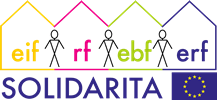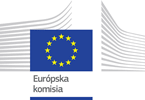In the following lines you can find a summary of the key activities and achievements of IOM Bratislava, which we were able to carry out in the past year in the field of integration of migrants, assisted voluntary returns and reintegration, counter trafficking, coordination of activities of the European Migration Network and humanitarian transfers of refugees.
Integration of Migrants
IOM Migration Information Centre (MIC)
The MIC has been operated by IOM Bratislava since 2006. The Centre provides free of charge legal, social and labour counselling to migrants with the aim of enhancing the integration of migrants in the society and the Slovak labour market. In 2012 MIC Bratislava and Košice was contacted by 1,678 clients, most of whom came from Ukraine, Russian Federation and Serbia. The Centre provided its clients with 3,266 personal, e-mail or phone consultations via the information hotline 0850 211 478. MIC website also constitutes a unique source of information and counselling from different aspects of life and residence of migrants in Slovakia and the website was visited by 156,973 visitors last year.
Specialized Counselling Days, i.e. One Stop Shops, presented a new activity of the MIC introduced in 2012. The model of integrated counselling which allows the migrants to acquire information provided by several institutions at one place was organized by the MIC Bratislava in August and November and by the MIC Košice in September. The events met with a positive response, the complex counselling was used by 40 clients from more than 10 countries, e.g. Columbia, Egypt, India, Nicaragua, Syria, USA, etc.
The MIC supports its clients in acquiring education, improving qualification or retraining and organizes free of charge open Slovak language courses and courses of socio-cultural integration providing information on different aspects of life in Slovakia – activities which enhance the integration of migrants in the society. 403 migrants attended the Slovak language courses and 194 attended the courses of socio-cultural orientation in 2012. Financial contribution for education and retraining courses was allocated to 65 clients.
Last year, the Centre cooperated with 25 cultural mediators – representatives of migrants associations and communities in Slovakia. With the support of the Centre, the mediators organize events with the aim of presenting their culture to the public, enhancing social life of their communities, helping their compatriots and creating a space for mutual interaction of the communities and the majority. The cultural mediators supported by the MIC organized 28 multicultural and community information meetings. To enhance the activities in communities and strengthen the competencies the MIC organized two trainings for the cultural mediators focused on the outreach work with clients and mediation in practice.

The project Migration Information Centre to Support Integration of Migrants in Slovakia is co-financed by the European Union from the European Fund for Integration of Third-Country Nationals. Solidarity and Management of Migration Flows.
Providing social and cultural orientation for migrants
On 19 September 2012, IOM organized an international conference Social and Cultural Orientation for Migrants from Third Countries, with participating experts from the Czech Republic, Austria, Sweden and IOM Offices in Geneva, Prague and Bratislava. Experts introduced their experience and recommendations to the employees of state and educational institutions, NGOs working with migrants and to the representatives of migrant communities. IOM introduced a summary of recommendations on programmes of social and cultural orientation for migrants in Slovakia, which can help their integration. The recommendations originated from the mapping of programmes of social and cultural orientation in selected countries, consulting with experts from countries offering such courses, and outputs from an international expert workshop on social, economic and cultural orientation for migrants from third countries organized by IOM in April 2012 in Bratislava.
Outputs from the conference and recommendations about preparing various programs of social and cultural orientation for better integration of migrants were published by IOM in a separate compendium (in Slovak language).

The project Providing Social and Cultural Orientation for Migrants – Exchange of Experience with Foreign Experts from EU Member States was co-financed by the European Union from the European Fund for the Integration of Third-Country Nationals. Solidarity and Management of Migration Flows.
Next Door Family EU – multicultural party and family meetings
IOM Bratislava carried out an event entitled MultiCOOLtural evening We are at home here. It was held on 19 April 2012 in the Cultural Centre Dunaj in Bratislava. The multicultural party with rhythm, dances, and flavours of Asia, Africa, the Orient and Caribbean attracted over 500 guests. The programme introduced a fusion of different cultures – both Slovak and foreign ones – and it underlined the fact they can mutually complement and enrich each other.
Within the Next Door Family EU project, which aims at bringing together Slovak and migrant families, majority and minority population living in Slovakia, 32 Slovak and migrant families shared their Sunday lunch on 18 November 2012. The meetings were attended by families from 11 countries who met with Slovak families at 9 various locations in Slovakia. It was a unique opportunity for both families to establish personal contact and become acquainted with each other, to reduce barriers and mutual isolation and to promote relations between Slovak and migrant families. On the same day, the meetings of local and migrant families were simultaneously held in 7 other EU countries.




The project Next Door Family EU – Inclusive Neigbourhoods is co-financed by the European Fund for the Integration of Third-Country Nationals (EIF) and by the U.S. Embassy in Bratislava, Slovakia. Media partners of family meetings in Slovakia were: Radio and television of Slovakia and SME daily.
Assisted voluntary returns and reintegration of migrants (AVRR)
Since 1998 IOM has been providing migrants with assistance within the framework of the Assisted Voluntary Return Programme. The assistance is provided on the basis of an agreement on cooperation between International Organization for Migration and the Ministry of Interior of the Slovak Republic on assistance with return of unsuccessful asylum seekers and illegal migrants to country of origin, i.e. assistance to migrants who found themselves in a difficult situation and who decided to return home. From 2004 until 2012 IOM provided return assistance to 1,059 migrants who returned to 54 countries worldwide.
In 2012 IOM Bratislava assisted 54 returnees with return to their country of origin. The majority of returnees headed for Moldova, Vietnam, Armenia, China, Russia and United States.
In 2012 IOM provided the returnees with reintegration assistance in the value of 42,032.99 EUR. A total of 27 cases consisting of individuals or whole families who opted for assisted voluntary return and applied for reintegration assistance were assisted with reintegration grant. The assisted cases originated from Vietnam, Moldova, Armenia, China, Iran, Macedonia, Nepal, Russia, Kosovo, Thailand, Turkey and Ukraine. You can find different stories of successful reintegration on the website of the AVRR Programme in Slovakia.


The AVRR Programme is co-funded by the European Union from the European Return Fund and the Ministry of Interior of the Slovak Republic. Solidarity and Management of Migration Flows.
Assistance for Victims of Human Trafficking
In 2012 IOM Bratislava identified 30 victims of human trafficking, 20 women and 10 men. Except for two cases all of them have Slovak citizenship. Five victimis were identified through the National Anti-trafficking Helpline. Nineteen victims decided to enter the Return and Reintegration Programme for Trafficked Persons, 13 of whom were helped by IOM to return to Slovakia. According to IOM statistics, almost 50% of victims with Slovak citizenship were trafficked into Great Britain.
In comparison with previous years’ trends we noticed several changes in the structure of human trafficking victims in 2012. We have monitored a lower ratio of men. The number of forced labour cases has decreased to 11%, while forced begging cases have notably increased to 23% and forced prostitution cases have increased to 55%. The number of forced marriage cases has increased as well.
IOM provided 1,064 consultations through the National Anti-trafficking Helpline 0800 800 818. Most of the consultations included communication with clients, providing preventative information to public and verification of job offers.
From March untill October 2012 IOM Bratislava delivered 10 trainings in identification of victims of human trafficking and its prevention and 6 trainings in the topic of forced labour. On average, 25 people from various institutions participated in each of the training, e.g. members of the police force, emloyees of work inspectorates, employees of the Ministry of Labour, Social Affairs and Family of the Slovak Republic, field social workers and children’s homes employees. The integral part of IOM training activities is also to prepare consuls and employees of the Ministry of Foreign Affairs of Slovak Republic for cooperation with the Slovak authorities in supporting victims of trafficking. In May 2012 IOM trained 22 consular officers, while 10 more consular officers were trained in November.
A documentary film on the topic of human trafficking called 0800 800 818 can be found on the IOM YouTube site and we added English subtitles in 2012.

The Return and Reintegration Programme for Trafficked Persons is carried out by IOM Bratislava as the integral part of national Programme of support and protection of victims of trafficking in human beings, which is financed by Ministry of Interior of the Slovak Republic.
Activities of the European Migration Network (EMN)
In 2012 IOM Bratislava as the coordinator of the European Migration Network National Contact Point (EMN NCP) in the Slovak Republic published six studies in the Slovak and English language, responded to 76 ad-hoc queries of various EU Member States and Norway, arranged a national conference, and three-day educational seminar, as well as ten other meetings of different types – for example thematic seminars, working breakfasts, cluster meeting, presentation at university, etc. Slovak EMN NCP representatives also participated in 26 national and international meetings and provided ten consultations on migration issues.
More information about the EMN can be found on www.emn.sk and www.emn.europa.eu.


The EMN was established via Council Decision 2008/381/EC and is financially supported by the European Union. The EMN activities in the Slovak Republic are co-financed by the Ministry of Interior of the Slovak Republic.
Humanitarian transfer of refugees
Based on a trilateral treaty between the Government of the Slovak Republic, the UN High Commissioner for Refugees (UNHCR) and IOM from June 2012 the Slovak Republic provides refugees with a temporary six-month-shelter on its territory. During this period of time the refugees are accommodated in the Emergency Transit Centre (ETC) in Humenne. IOM is responsible for the transportation of refugees from the refugee camp to the Slovak Republic and from the Slovak Republic to the country of resettlement, as well as for security interviews, medical examinations and cultural orientation courses. A successful completion of these steps means a new beginning in the third country. There are only two similar centres in the world apart from Humenné – in Romania and Philippines.
180 refugees from refugee camps in Egypt, Eritrea, Iraq and Yemen came to the ETC in Humenné in 2012, while 166 of them were resettled to United States of America and Canada in the same period. Almost half of these refugees were of Somali nationality and a third of them were Afghans. Other nationalities resettled through Humenné were Ethiopian, Eritrean and Iraqi. Most of the resettled refugees were women with children, or families. Eight children were born in the Centre in 2012, with six of them already growing up in the United States or Canada.
 Slovenčina
Slovenčina
 Українська (Україна)
Українська (Україна)
 English
English
